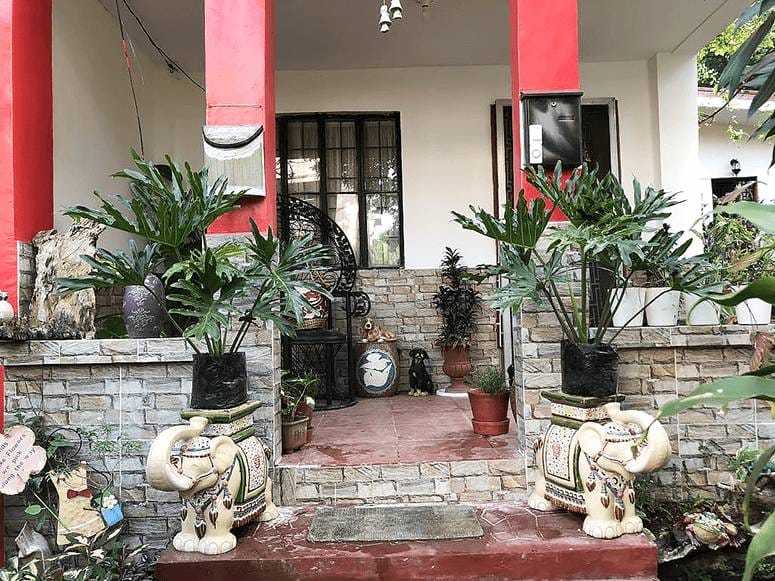When artist and teacher Nel Gumalog decided to invest in a place of his own, he knew he wanted it to approximate the childhood home he grew up in: a house sitting atop a mountain, blanketed by fog and peaceful silence on any given morning. A condo unit in a high-rise standing in the heart of a bustling city would not do.
As a millennial, Gumalog is an outlier when it comes to his home ownership plans. According to market research agency Kadence International, Filipino millennials and Gen Zs prefer urban locations for their living spaces for obvious reasons: proximity to work and school; diverse options for social and recreational activities; and easy access to all the conveniences of a business and cultural hub.
In the eleven years he spent sin Manila, Gumalog took full advantage of these city perks. He established himself in the country’s performing arts industry as an actor and doing production work and juggled that with a part-time teaching load at two premier universities. But when the pandemic hit and ushered in an unprecedented level of uncertainty and volatility, Gumalog realized he needed to make more long-term plans, one of which was to return to a more tranquil rural life.

“I wanted to see the fruits of my labor, which is why two years ago I decided to buy my own home,” said Gumalog. A native of Benguet who grew up in a tightknit extended family spread across La Union, Pangasinan, and Baguio, he knew he wanted to settle down where he was most comfortable. “I chose [to look for a lot in] Baguio kasi iba pa rin yung idea that you are in your original soil. Alam mo yung way of living ng mga tao dun; alam mo kung pano sila makihalubilo; alam mo yung values nila. So, I don’t have to adjust anymore or read the room, and I can speak my mother tongue.”
The pandemic was also the turning point for retired airline executive Ann Gay Velez. She was in Boston, Massachusetts in 2020 and saw firsthand the challenges of managing a health crisis in a packed metropolis. She resolved to return to the Philippines and build a home in a rural area where the cost of living would be lower and she could be “far from the maddening, crowded city.”
In searching for their own plot of land, Gumalog and Velez were quite clear about their non-negotiables.
“I was looking for property that would be free from flooding, accessible to hospitals and public transportation, and accessible to Metro Manila,” said Velez, who was also looking to maintain her traveller’s lifestyle well into retirement. Her broker found a 1,100 square meter piece of land in a quiet barangay in Cavite that is only 38 kilometers from the city of Makati.
Gumalog’s checklist was somewhat similar. He relied on his siblings to help him look for a lot for his future home, with the number one condition being it be near their own properties. He also asked that it be near a main road, a transport terminal, and a wet market. Through his siblings’ extensive local network and knowledge of where to safely build in the mountainous terrains of Baguio, Gumalog found a plot of land in the outskirts of the town proper, one that is nowhere near a mall and, on quiet, crisp mornings, seems to float in a sea of fog.
Although Gumalog has yet to start building his home, he has fully committed to rural life, permanently moving out of Manila in 2022 with no regrets.
“In Manila, you have to budget your money really well kasi kada galaw mo dun, gumagastos ka,” says Gumalog, who admits that balancing his daily expenses when he was still living in the city was a major stressor. And despite having a thriving career in the performing arts and the academe back in Manila, Gumalog was hard-pressed to grow his savings. Not so in Baguio. Since returning to his hometown, he has saved enough to enroll in a second masteral degree course, this time in Australia where he plans to be a working student so he can continue paying for his lot in Baguio.
For Velez, the move to her small village in Cavite has given her the financial wiggle room to continue pursuing her passion. “Living in a rural area is less expensive in terms of food and property maintenance. I can live on what I have and spend my money on travel, because all I want to do is to travel the world,” she says. For someone who is always on the go, she relies heavily on the genuine sense of community in her barangay. “I have no concrete bakod, no gate, but I feel safe in Cavite because neighbors here really look out for each other,” says Velez, whose neighbors take it upon themselves to tend to her lush garden when she is away.
It is just one of the many perks of rural living that is difficult to quantify but easy to appreciate, especially after the chaos of the pandemic years. And so while migration trends within the country continue to move towards urban centers, there are folks who have achieved a better quality of life by going against that flow. For people like Velez and Gumalog, rural life offers opportunities that far outweigh the buzz of the city, such as the chance to have a quiet place of one’s own where one can be unbothered and blessed.
